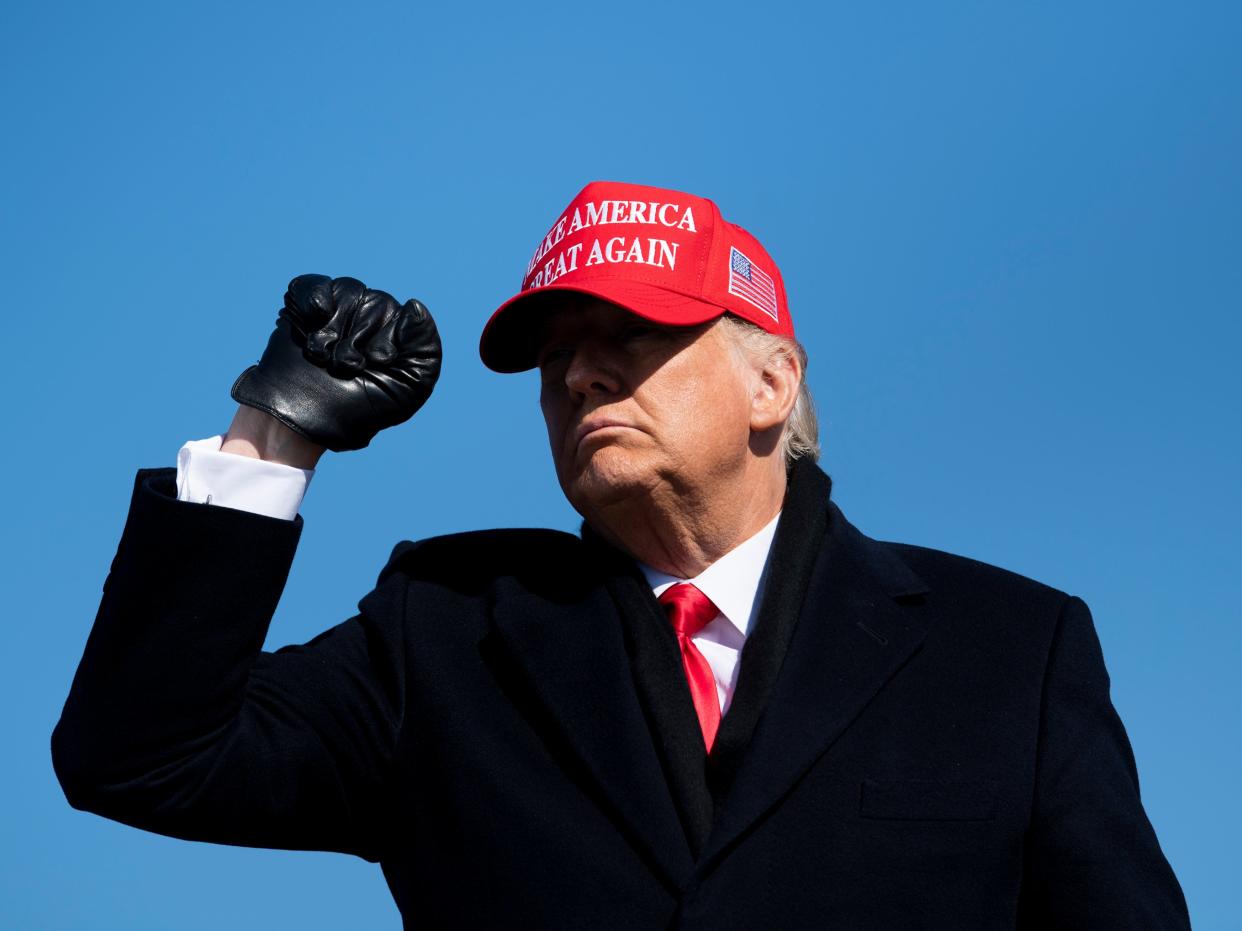I voted Trump in 2016 – but I won’t do it again because of my daughter

- Oops!Something went wrong.Please try again later.
On August 3, 2019, a gunman shot and killed 23 people and injured 23 others in a Walmart in El Paso, Texas. It was the deadliest attack on Latinos in recent American history. Police believe the shooting was linked to a white nationalist manifesto in which by the suspected shooter, Patrick Crusius, described Hispanics as invaders.
Like millions of Americans, I mourned the loss of innocent life. Though I live in Pennsylvania, my daughter attends grad school in Texas, hundreds of miles from El Paso. But it wasn't miles that determined how close and personal the attack felt. My daughter is Latina. She called me after the news of the attack broke. “Mom, I’m freaked out about the shooting,” she said. “Now I’m afraid to go to Walmart.”
My husband and I adopted Annelise in West Texas, near where she now goes to school. I remember how we linked pinkies on the way to the airport heading home to Pennsylvania. She was 10 days old. “I’m taking you home,” I signaled with a squeeze. “I know,” she squeezed back.
Over the years, there were the inevitable tensions over one too many tattoos, (“I had to have a skeleton, I’m a forensic science major”) or the nose ring (“Mom, it’s retractable!”) – but we’ve been a team ever since that first day.
My daughter is smart, opinionated, and independent. She attended college in Italy and traveled solo to Austria over spring break to visit the setting of her favorite movie, The Sound of Music. It doesn’t matter how far across the world she goes. To me, she’s only a heartbeat away.
So when she told me that day on the telephone that she was afraid to go to Walmart, it hit me squarely in the gut. There is something inescapably visceral about a parent's protective instincts. Don’t mess with my daughter.
I’m not a super-store shopper. But on a Christmas visit to Texas the year before, Annelise and I had perused the aisles of Walmart and Target. It was our first Christmas since my husband – her much-loved dad – had died, and it felt good to be together, joking around, buying funny Christmas cards and stocking fillers for her rescue pup.
Now she was afraid. And I was afraid. What if a copycat gunman went to her Walmart and targeted her because of the way she looked? I imagined myself shielding her, taking the bullet as any parent would. But what if I wasn’t there?
Like many conservatives, I voted for Donald Trump in 2016, in the hope that he would reform immigration and negotiate more favorable trade deals for American workers. But now my daughter, the person I love more than anyone in the world, was afraid, with reason, to go to a store in America. This was close enough to home to warrant a political correction.
It wouldn’t be the first.
Millennials often roll their eyes at stories of Sixties radicals who morphed into neoconservatives, but that's exactly what happened to me. Now I am once again putting myself under a moral microscope, interrogating myself and my political assumptions.
Was the El Paso shooting evidence of something insidious in the current political and cultural climate? Something that an unhinged gunman with a grudge might interpret as a signal that Trump had his back?
Mass killings in America have been accelerating since 2011. To be fair, Trump called out the El Paso shooting, quickly and repeatedly, stating that “our nation must condemn racism, bigotry and white supremacy.” But he is also hyperbolical and provocative, using terms such as “predators,” “invasion,” and “animals” when discussing immigration.
That’s all a disaffected loner needs to hear. Trump didn’t pull the trigger, but he fanned the flames and pushed us further to the edges. And I worry about the edges in a country where each political party views the other as an existential threat.
The other night, I decided to take a break from writing and watch a movie. I chose Freaky Friday, a delicious cupcake of a comedy about a mother and her teenage daughter who temporarily switch bodies – and perspectives. But the story conveys a deeper truth: you understand and change only through empathy and love, through the heart.
Unlike the characters in Freaky Friday, I didn't require an earthquake or a fortune cookie to change my perspective. Bad things just needed to happen close to home, close to the heart. Now I know I won’t be voting for Trump tomorrow.
I recently looked up the antonym for “freaky”. The dictionary pointed me to words like “normal”, “familiar”. Those are the sentiments I’m hoping Tuesday – and a Joe Biden presidency – will restore in America.
Read more
What is the electoral college and how does it work? A simple guide

